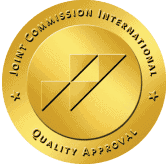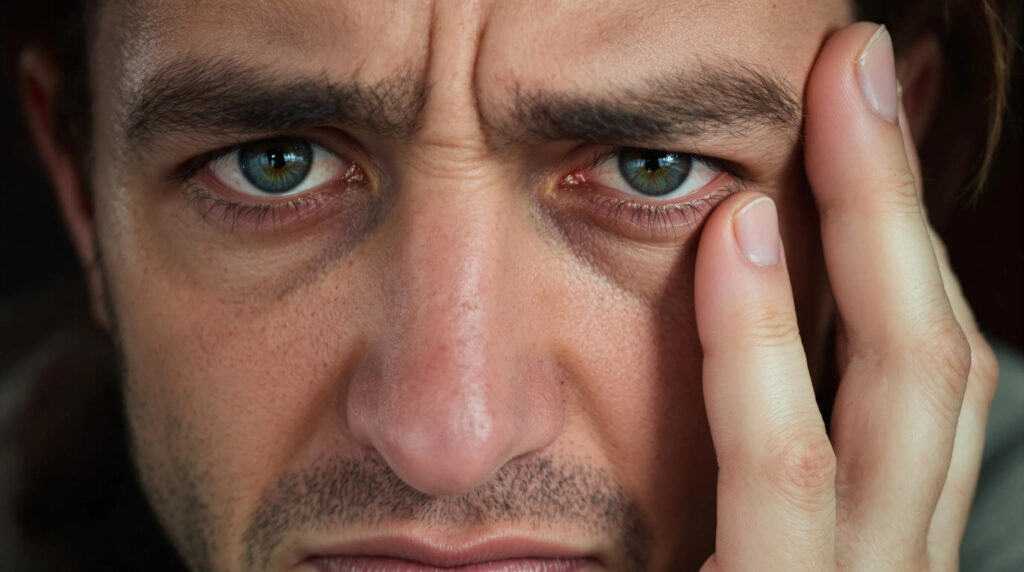You’re not alone in facing benzodiazepine addiction. According to recent data, approximately 4.7 million Americans struggle with prescription tranquilizer misuse, and you deserve compassionate, evidence-based treatment to reclaim your life.
Breaking free from benzodiazepines requires specialized medical support due to the potentially dangerous withdrawal process. You need a treatment approach that addresses both the physical dependence and the underlying issues that led to addiction. Quality treatment facilities provide the medical supervision, therapeutic support, and structured programs necessary for your safe and successful recovery journey.
What are the signs and symptoms of benzodiazepine addiction?
You may be experiencing benzodiazepine addiction if you notice changes in your behavior, physical health, and emotional well-being. Recognizing these signs is your first step toward seeking help. Treatment professionals look for specific indicators that distinguish dependence from prescribed use.
Physical symptoms you might experience:
- Drowsiness and sedation throughout the day
- Slurred speech or difficulty articulating thoughts
- Poor coordination and balance problems
- Muscle weakness or tremors
- Blurred vision or double vision
- Headaches that persist despite medication
- Nausea or gastrointestinal discomfort
- Changes in appetite or weight
- Respiratory depression or shallow breathing
- Memory problems and confusion
Behavioral signs you should watch for:
- Taking higher doses than prescribed
- Doctor shopping to obtain multiple prescriptions
- Using benzodiazepines without a prescription
- Inability to reduce or stop use despite wanting to
- Neglecting responsibilities at work or home
- Isolating from family and friends
- Engaging in risky behaviors while under the influence
- Stealing or lying to obtain medication
- Mixing benzodiazepines with alcohol or other drugs
- Experiencing cravings when medication runs low
Psychological symptoms you may notice:
- Increased anxiety when not using
- Depression or mood swings
- Irritability and agitation
- Panic attacks between doses
- Difficulty concentrating or focusing
- Emotional numbness or detachment
- Paranoia or suspicious thoughts
- Suicidal ideation in severe cases
When should you seek emergency treatment for benzodiazepine withdrawal?
You should never attempt to quit benzodiazepines suddenly without medical supervision. The withdrawal process can be life-threatening, and certain symptoms require immediate emergency care. Understanding when to seek urgent help could save your life.
Seek immediate medical attention if you experience:
- Seizures or convulsions
- Severe confusion or delirium
- Hallucinations (visual, auditory, or tactile)
- Extreme agitation or violent behavior
- Rapid heart rate exceeding 120 beats per minute
- Blood pressure spikes above 180/120
- Severe tremors affecting your entire body
- Thoughts of self-harm or suicide
- Difficulty breathing or chest pain
- Loss of consciousness
Early withdrawal symptoms requiring medical monitoring:
- Severe anxiety or panic attacks
- Insomnia lasting more than 48 hours
- Profuse sweating and fever
- Nausea and vomiting preventing fluid intake
- Muscle pain and stiffness
- Sensory distortions or hypersensitivity
- Heart palpitations
- Severe headaches
- Agitation and restlessness
Treatment centers provide 24/7 medical monitoring during the critical withdrawal period. You’ll receive medications to manage symptoms safely and prevent complications. The medical team adjusts protocols based on your specific benzodiazepine type, as short-acting varieties like Xanax produce symptoms within 6-8 hours, while long-acting types like Valium may not cause withdrawal for over a week.
How does professional benzodiazepine addiction treatment work?
Your journey through benzodiazepine addiction treatment follows a structured, evidence-based approach designed for your safety and success. Treatment centers utilize comprehensive programs that address both the physical and psychological aspects of addiction.
Your treatment process typically includes:
Initial Assessment and Evaluation
You’ll undergo a thorough medical and psychological evaluation to determine the appropriate level of care. The assessment team reviews your benzodiazepine use history, co-occurring conditions, and personal treatment goals.
Medical Stabilization
During this critical phase, you receive 24/7 medical monitoring and medication management. The medical team implements a gradual tapering schedule to minimize withdrawal symptoms and prevent complications.
Program Placement
Based on your assessment, you’ll enter one of four treatment programs:
- Drug Rehab: You’ll receive intensive, round-the-clock care in a structured residential setting
- Partial Hospitalization Program (PHP): You attend treatment 5-7 days per week for 6-8 hours daily, returning home in the evenings
- Intensive Outpatient Program (IOP): You participate in treatment 3-5 days per week for 3-4 hours per session
- Outpatient Program (OP): You attend weekly individual and group sessions while maintaining work or school commitments
Therapeutic Interventions
You’ll engage in evidence-based therapies including:
- Individual counseling to address personal triggers
- Group therapy for peer support and shared experiences
- Cognitive Behavioral Therapy (CBT) to change thought patterns
- Family therapy to rebuild relationships
- Trauma-informed care when applicable
What makes benzodiazepine treatment different from other addictions?
Benzodiazepine addiction requires specialized treatment approaches that differ significantly from other substance dependencies. You need a program that understands these unique challenges and provides appropriate medical and therapeutic interventions.
Key differences in benzodiazepine treatment:
Extended Withdrawal Timeline
Unlike many substances, benzodiazepine withdrawal can last weeks or months. You may experience protracted withdrawal symptoms that require ongoing medical management. Treatment centers prepare you for this extended timeline and provide continuous support.
Medical Complexity
The risk of seizures and other severe complications makes medical supervision essential. Your treatment team implements careful tapering protocols, sometimes switching you to longer-acting benzodiazepines before gradually reducing doses.
Co-occurring Anxiety Disorders
Since benzodiazepines are often prescribed for anxiety, you likely have an underlying anxiety disorder requiring simultaneous treatment. Programs address both conditions through integrated dual diagnosis care.
Cognitive Impacts
Long-term benzodiazepine use affects memory and cognitive function. Your treatment includes cognitive rehabilitation exercises and strategies to manage these effects during recovery.
Psychological Dependence
The psychological attachment to benzodiazepines often exceeds physical dependence. You’ll work extensively on developing new coping mechanisms for anxiety and stress management without medication reliance.
Which evidence-based therapies treat benzodiazepine addiction most effectively?
Treatment centers employ proven therapeutic approaches specifically effective for benzodiazepine addiction. You’ll participate in multiple evidence-based modalities that address different aspects of your recovery journey.
Cognitive Behavioral Therapy (CBT)
CBT shows 70-80% success rates in treating insomnia and anxiety without medication. You’ll learn to identify and change thought patterns that contribute to addiction and develop healthier coping strategies.
Motivational Enhancement Therapy
This approach helps you find internal motivation for change. You’ll explore your ambivalence about recovery and strengthen your commitment to sobriety through guided self-discovery.
Dialectical Behavior Therapy (DBT)
DBT teaches you distress tolerance and emotional regulation skills crucial for managing anxiety without benzodiazepines. You’ll practice mindfulness techniques and interpersonal effectiveness strategies.
Contingency Management
This behavioral intervention provides tangible rewards for positive behaviors like attending sessions and passing drug tests. You’ll experience immediate reinforcement for recovery-focused choices.
12-Step Facilitation
While adapting traditional 12-step principles for prescription drug addiction, you’ll benefit from peer support and structured recovery steps. Many find the community aspect invaluable for long-term sobriety.
Mindfulness-Based Stress Reduction
You’ll learn meditation and relaxation techniques that naturally reduce anxiety. These practices become lifelong tools for managing stress without medication.
What happens after completing benzodiazepine addiction treatment?
Your recovery journey continues beyond formal treatment completion. Successful long-term sobriety requires ongoing support and lifestyle modifications. Treatment centers prepare you for this transition through comprehensive discharge planning.
Your post-treatment plan includes:
Continued Therapy
You’ll maintain regular counseling sessions to address ongoing challenges and prevent relapse. Many continue with weekly or bi-weekly appointments for the first year.
Support Group Participation
Regular attendance at support groups provides peer accountability and encouragement. You’ll find groups specifically for prescription drug addiction or general recovery communities.
Medication Management
If you have underlying anxiety or other conditions, psychiatrists work with you to find non-addictive treatment alternatives. Regular monitoring ensures your mental health remains stable.
Lifestyle Modifications
You’ll implement the healthy habits learned in treatment:
- Regular exercise routine
- Stress management practices
- Healthy sleep hygiene
- Nutritious eating patterns
- Meaningful activities and hobbies
Relapse Prevention Strategies
Your personalized relapse prevention plan identifies triggers and outlines specific actions to maintain sobriety. You’ll have emergency contacts and clear steps for challenging situations.
Alumni Programs
Many treatment centers offer alumni services, including:
- Monthly check-ins
- Alumni group meetings
- Social events and activities
- Refresher workshops
- Crisis support access
Frequently asked questions about benzodiazepine addiction treatment
PHP provides a more intensive daily structure when you need significant support, but you can safely return home evenings. You’ll attend treatment 5-7 days weekly for 6-8 hours daily, receiving meals and comprehensive therapeutic services. IOP offers flexibility for those maintaining work or family obligations, with 3-5 weekly sessions lasting 3-4 hours each. Treatment professionals assess your medical stability, support system, and daily functioning to recommend the appropriate level.
Yes, both IOP and OP programs allow you to maintain employment. IOP typically schedules sessions during evening hours or offers morning/afternoon tracks to accommodate work schedules. OP provides even greater flexibility with weekly appointments, you can schedule around professional commitments. Many employers support treatment participation, and federal laws protect your job during medical leave for Drug Rehab or PHP if needed.
Medical professionals create individualized tapering schedules based on your specific medication, dosage, and use duration. The process typically involves switching to a long-acting benzodiazepine like diazepam, then gradually reducing doses by 10-25% every 1-2 weeks. You’ll receive comfort medications to manage withdrawal symptoms and daily monitoring to adjust the schedule as needed. The entire tapering process may take several weeks to months, depending on your starting dose.
Treatment centers specialize in dual diagnosis care, simultaneously addressing both conditions. You’ll work with psychiatrists to explore non-addictive anxiety treatments including SSRIs, therapy, and holistic approaches. The therapeutic team teaches anxiety management techniques like deep breathing, progressive muscle relaxation, and cognitive restructuring. Your treatment plan ensures underlying anxiety receives proper attention to prevent relapse.
Take the first step toward benzodiazepine addiction recovery today
You don’t have to face benzodiazepine addiction alone. Professional treatment provides the medical safety, therapeutic support, and structured environment necessary for successful recovery.
The path to recovery starts with reaching out for help. Assure Recovery understands the courage it takes to seek assistance and provide compassionate, judgment-free support from your first contact. Whether you’re concerned about withdrawal dangers, unsure about treatment options, or ready to start your recovery journey, expert help is available.
Contact Assure Recovery addiction treatment center today to discuss your situation and explore treatment options. Your recovery journey begins with one phone call, and a team of caring professionals stands ready to guide you toward lasting freedom from addiction.



